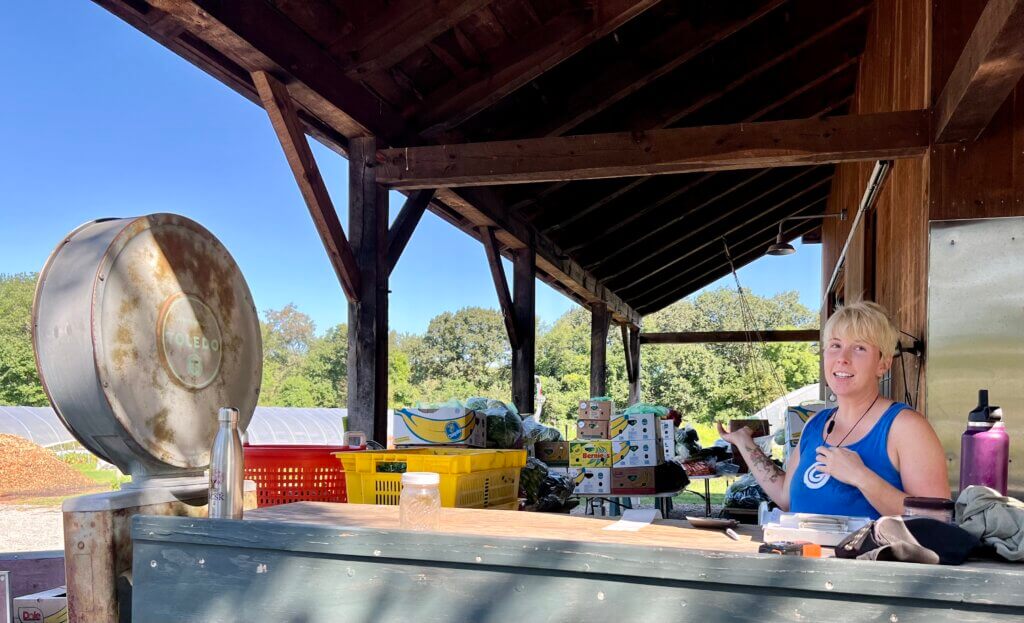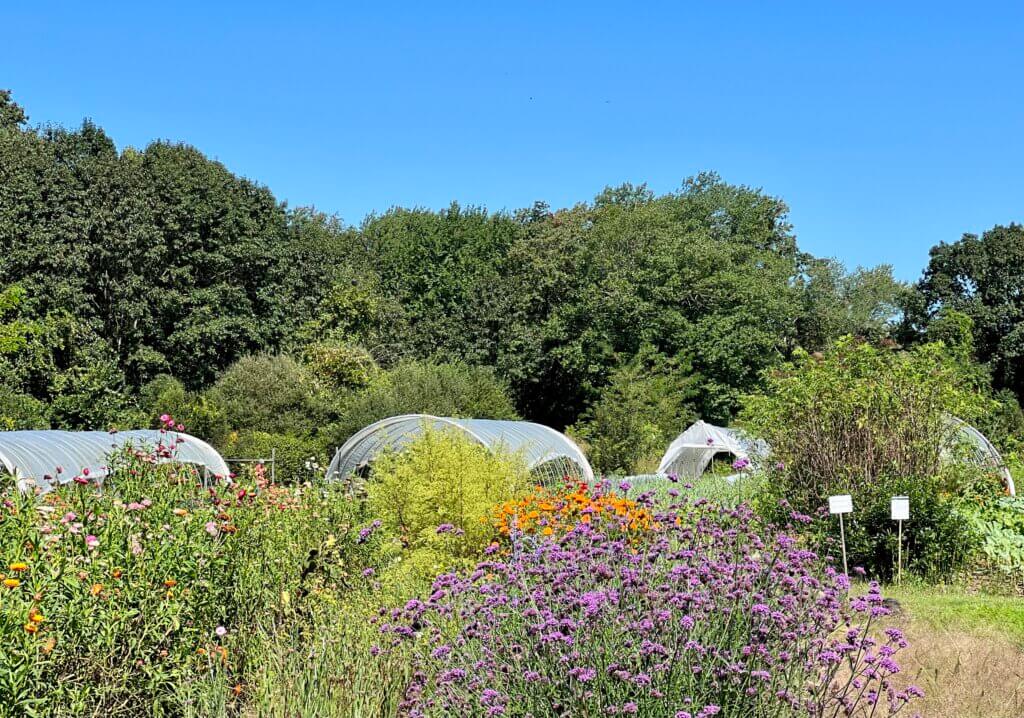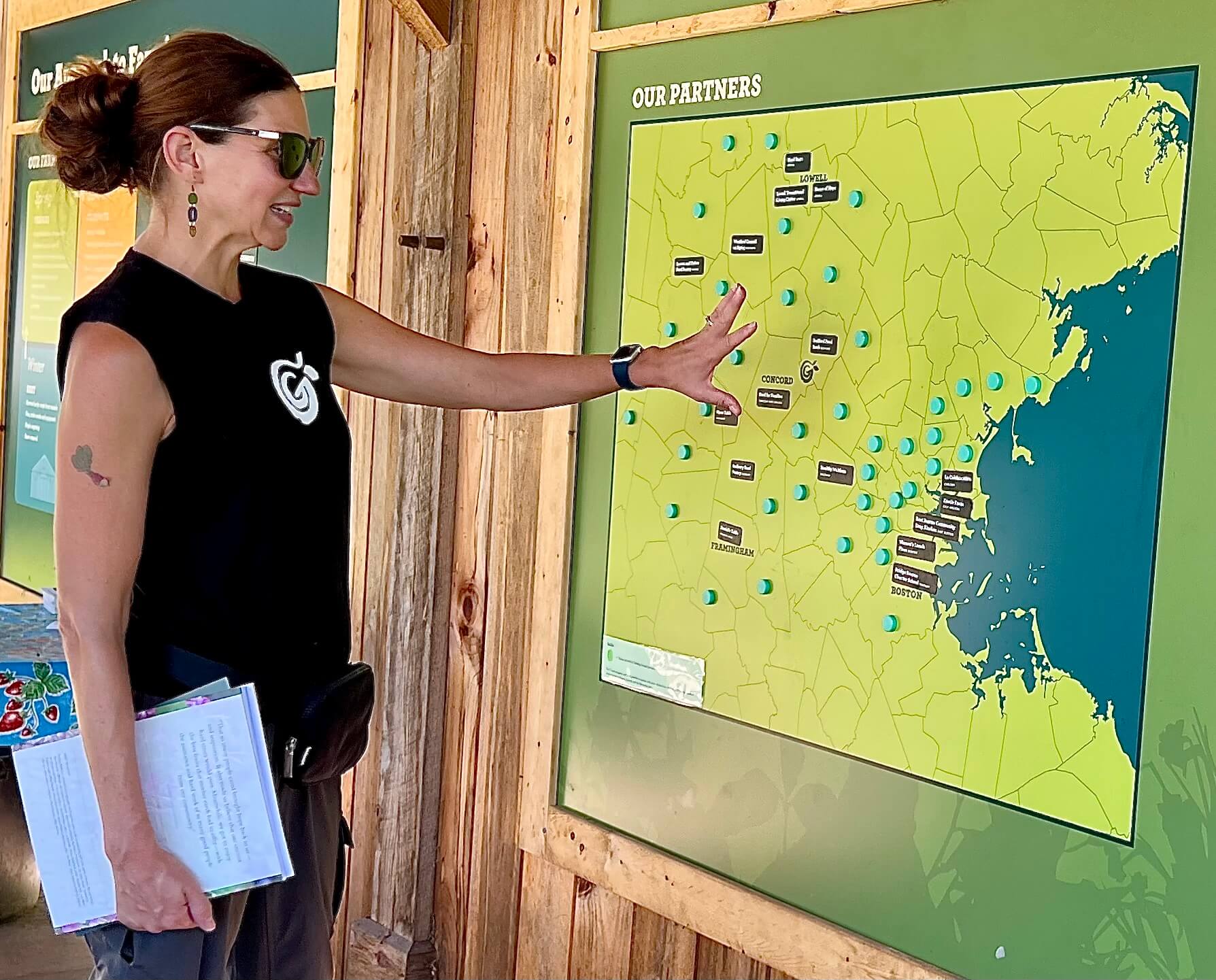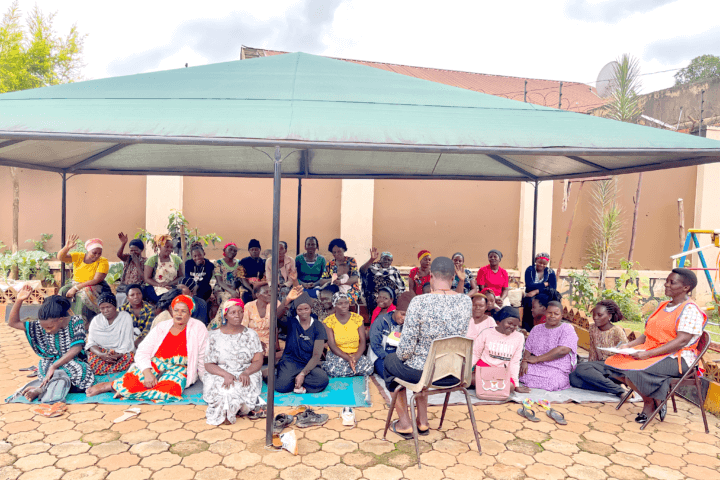The cherry tomatoes at Gaining Ground are explosive with flavor as the year tiptoes into autumn. The arugula is crisp and peppery, the rainbow chard vibrant.
The quality of the fruits and vegetables grown here off Virginia Road would entitle them to a place of honor on any supermarket shelf — but every bit of what’s raised here is given away to fight hunger.
Now, Gaining Ground is branching out to five acres of new land within Minute Man National Historical Park. The license agreement means more than a doubling of the nonprofit farm’s current footprint — and the potential to dramatically increase the amount of fresh food it shares with pantries, shelters and schools.
Gaining Ground is in its 29th growing season. It takes inspiration from late founder Jennifer “Jamie” Bemis.
“It was her vision to start what she called a ‘soup kitchen garden,’ [a] plot in her front yard to dedicate to growing fruits and vegetables that she would give away to the local food pantry,” Gaining Ground’s Executive Director Johnson says. “It has over time blossomed into what you see here.”
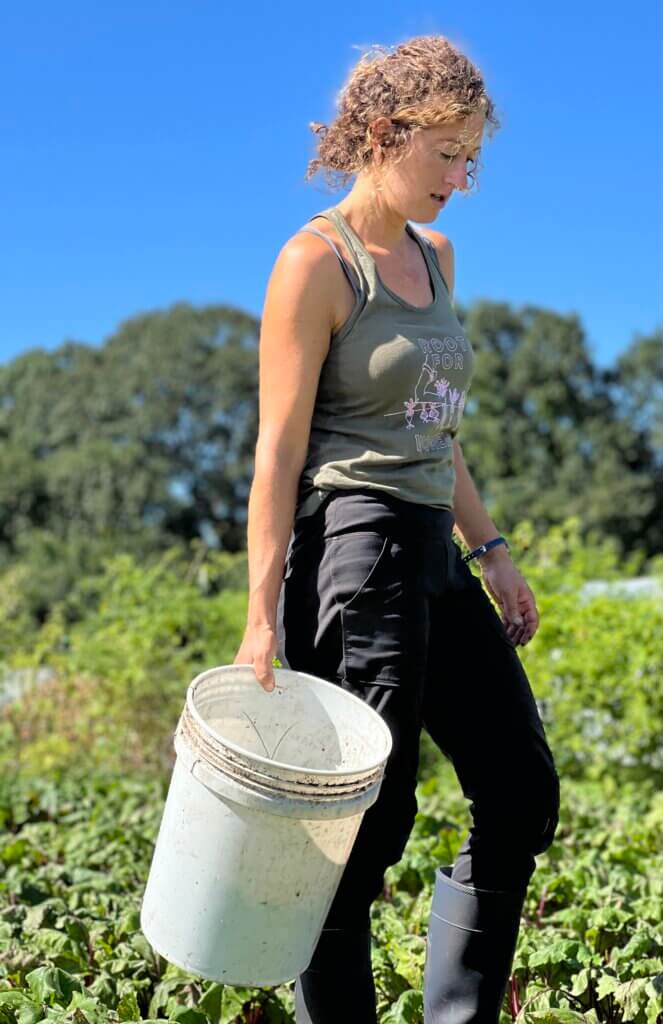
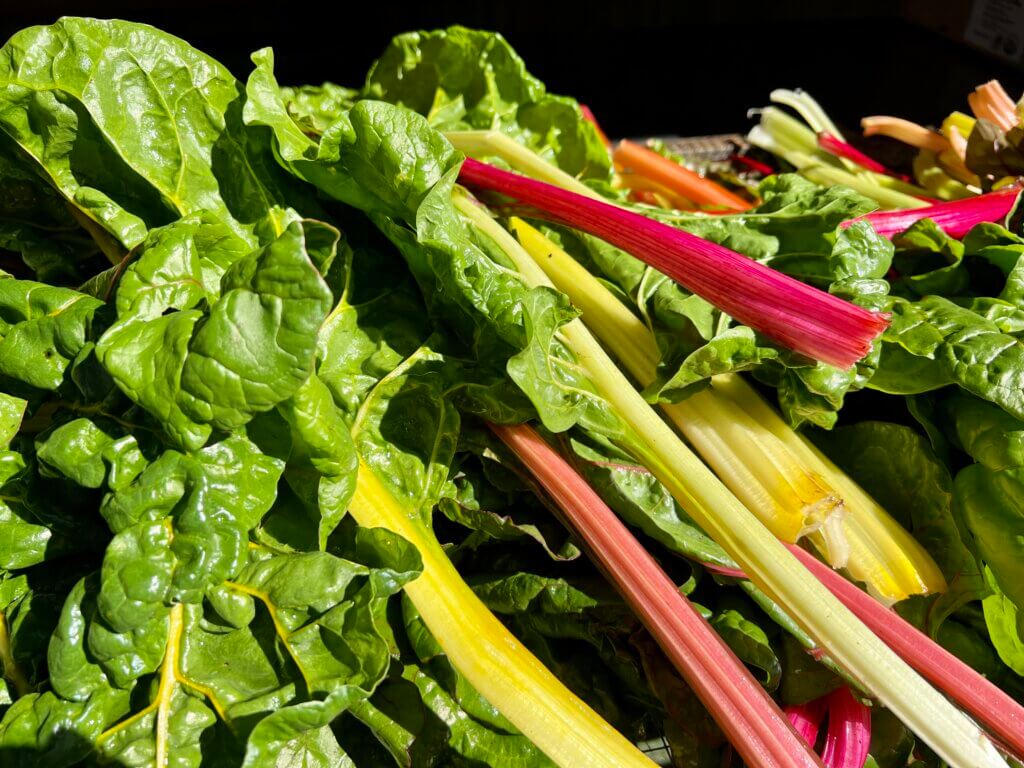
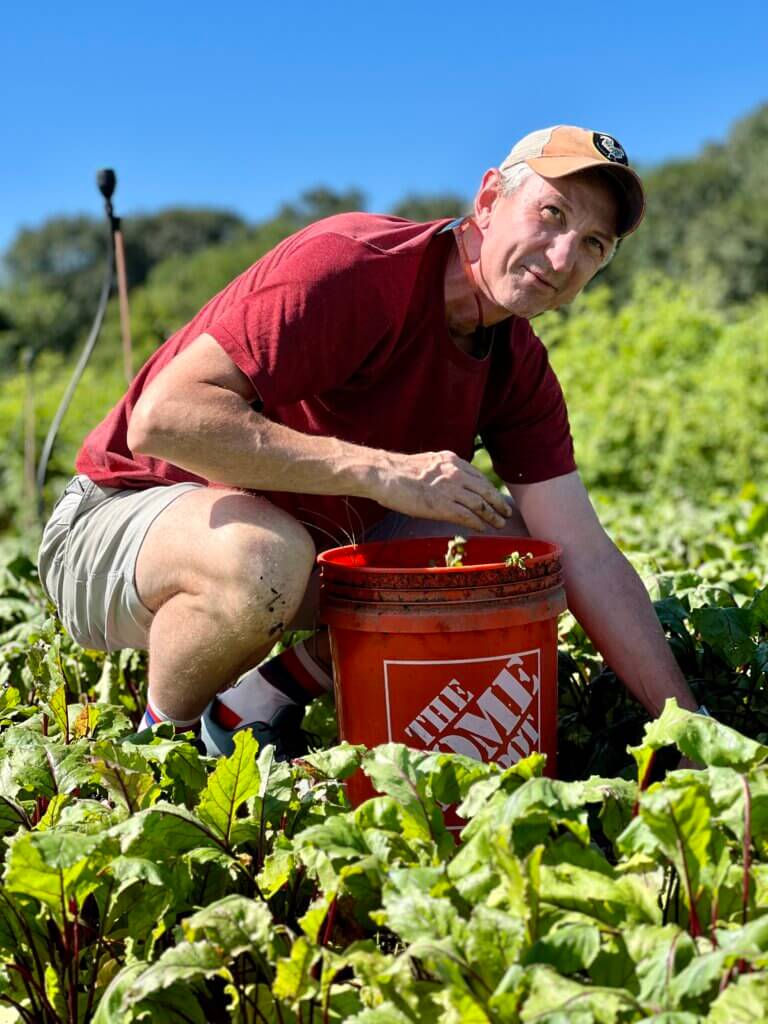
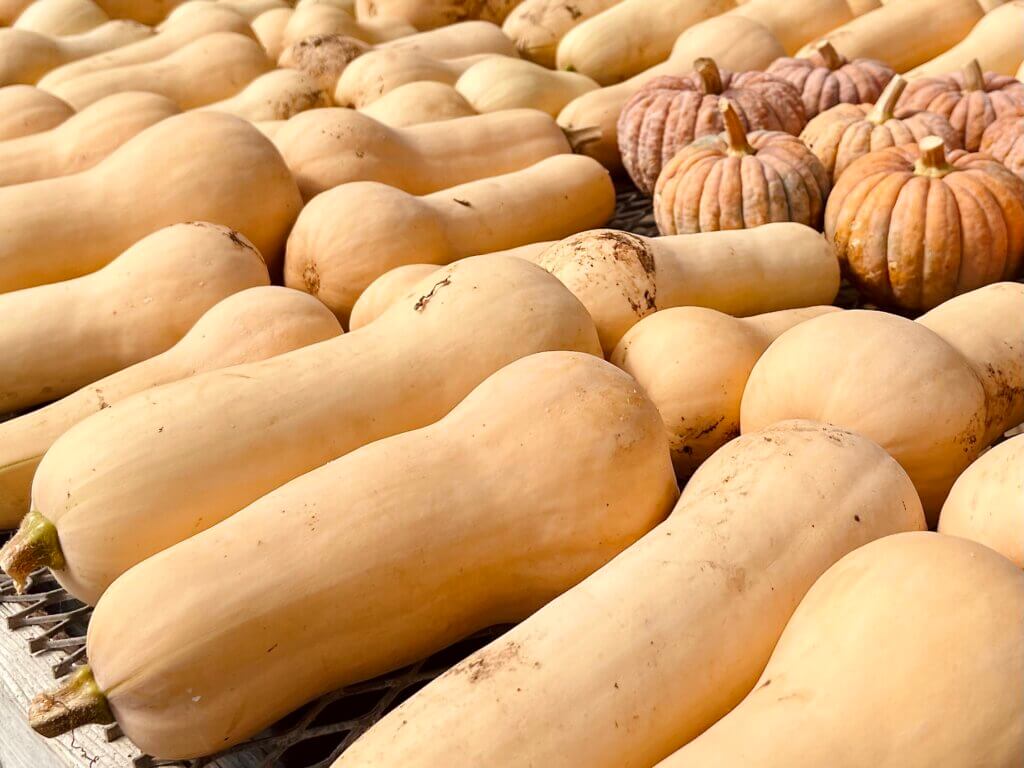
What you see during a visit: Peaceful rows of vegetables growing under the open sky. Stretches of land resting under a green ground cover of oats and peas. Covered “hoop houses” for more protected agriculture. A wash station for rinsing produce before it’s bagged or boxed and neatly labeled for pickup or delivery. A fence to keep off voracious four-legged bandits.
Gaining Ground is an organic farm, but it’s also “no-till,” meaning heavy machinery isn’t used to turn over a thick layer of earth for planting — a practice that can contribute to problems like soil erosion.
“It’s better for the crops, better for people,” Johnson says. “It’s certainly better for the land.”
The farm raises and gives away about 120,000 pounds of food per year — about a half-million servings of organic produce — but weight isn’t the only measure of success, she says. Some heavy crops, such as potatoes, are easier and cheaper to get at stores or through other donors, so Gaining Ground keeps in mind the tastes of those who will eat the food and raises specialty items such as bok choy, fennel, hot peppers and jilo, an eggplant enjoyed in Brazil.
Gaining Ground produce, which in earlier times mainly bolstered regional food banks like Open Table, now plays a role in the work of 17 hunger relief groups serving 41 communities across eastern Massachusetts. The need is urgent: Last year, a third of Massachusetts adults faced food insecurity, according to the Greater Boston Food Bank. Many said they used money that could have gone for food to pay for utilities, health care or transportation.
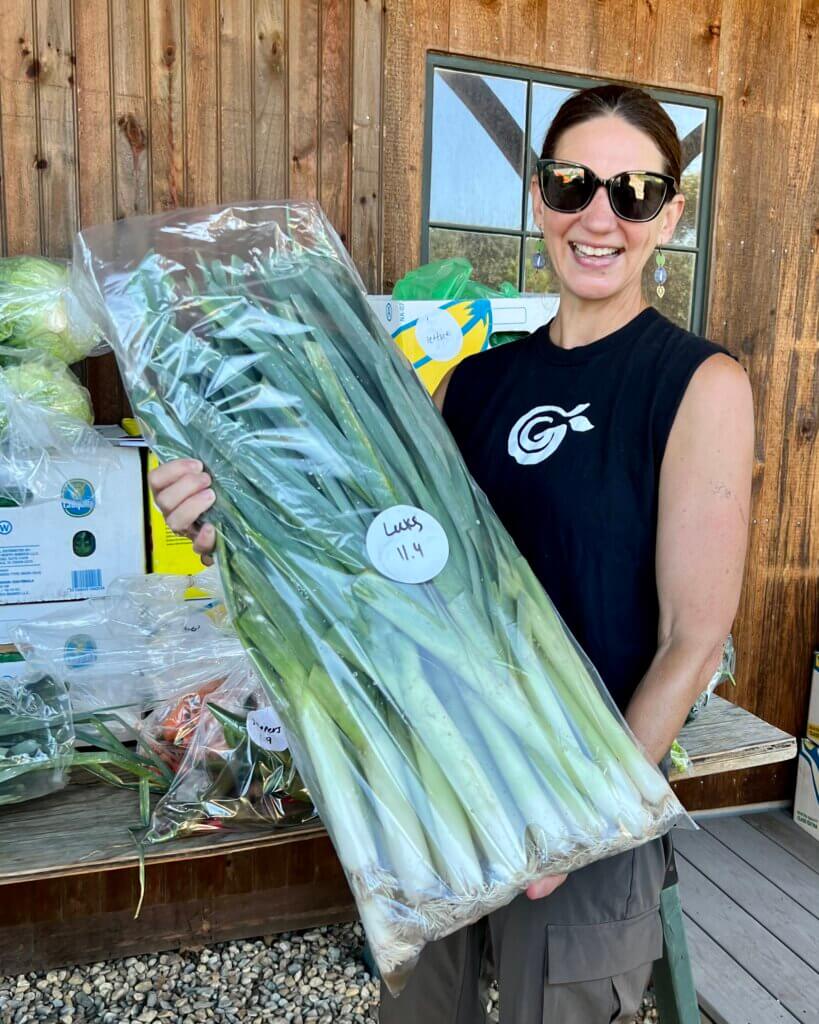
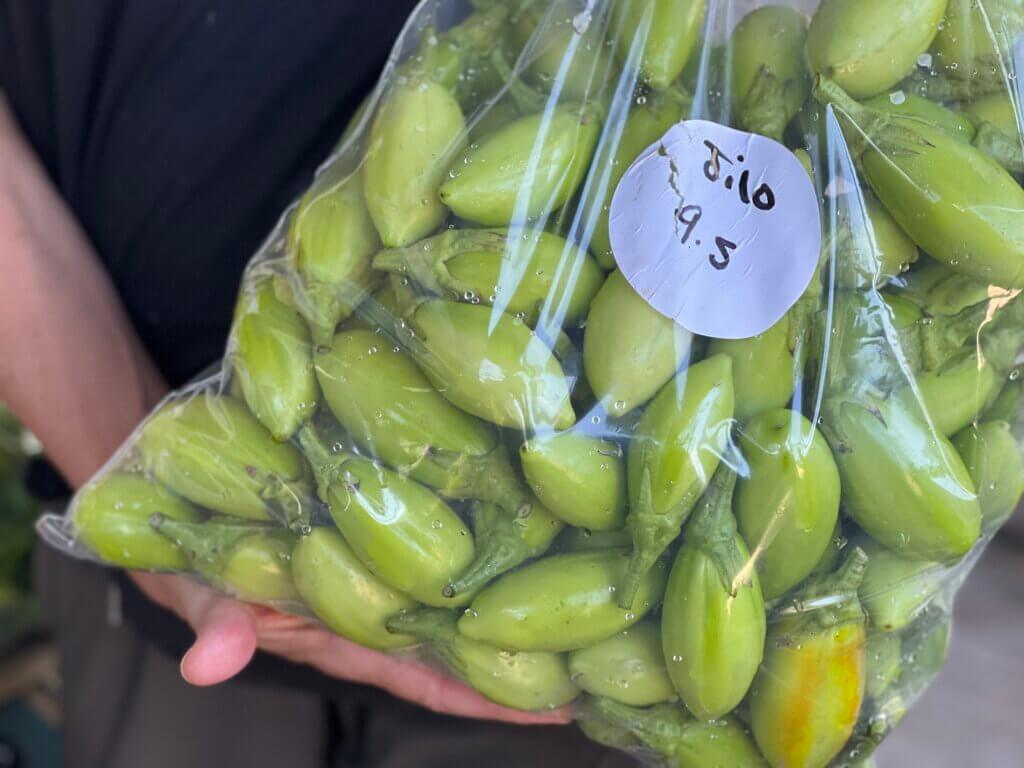
The farm’s bounty ends up at places like House of Hope, which assists single moms and their kids in Lowell; in the meals served to children at Bridge Boston Charter School; or at free farmer’s markets run by Food for Families and coordinated with the Concord and Carlisle Councils on Aging.
Tending these acres is a small group of professional staff, joined by thousands who donate their time during the April-October growing season. “I think it’s just trying to help those who are trying to help others,” says volunteer Chris Arthur of West Concord during a break from weeding.
As a fully donation-focused farm, Gaining Ground doesn’t have to make choices about what to sell and what to give away. The best of everything ends up in the hands, and on the plates, of those who need it most.
“We like to honor and value the dignity of every single person,” Johnson says. “That’s actually something we really fundamentally believe — that access to the nutritious food that is necessary to live a healthy life is a human right and not a privilege.”
